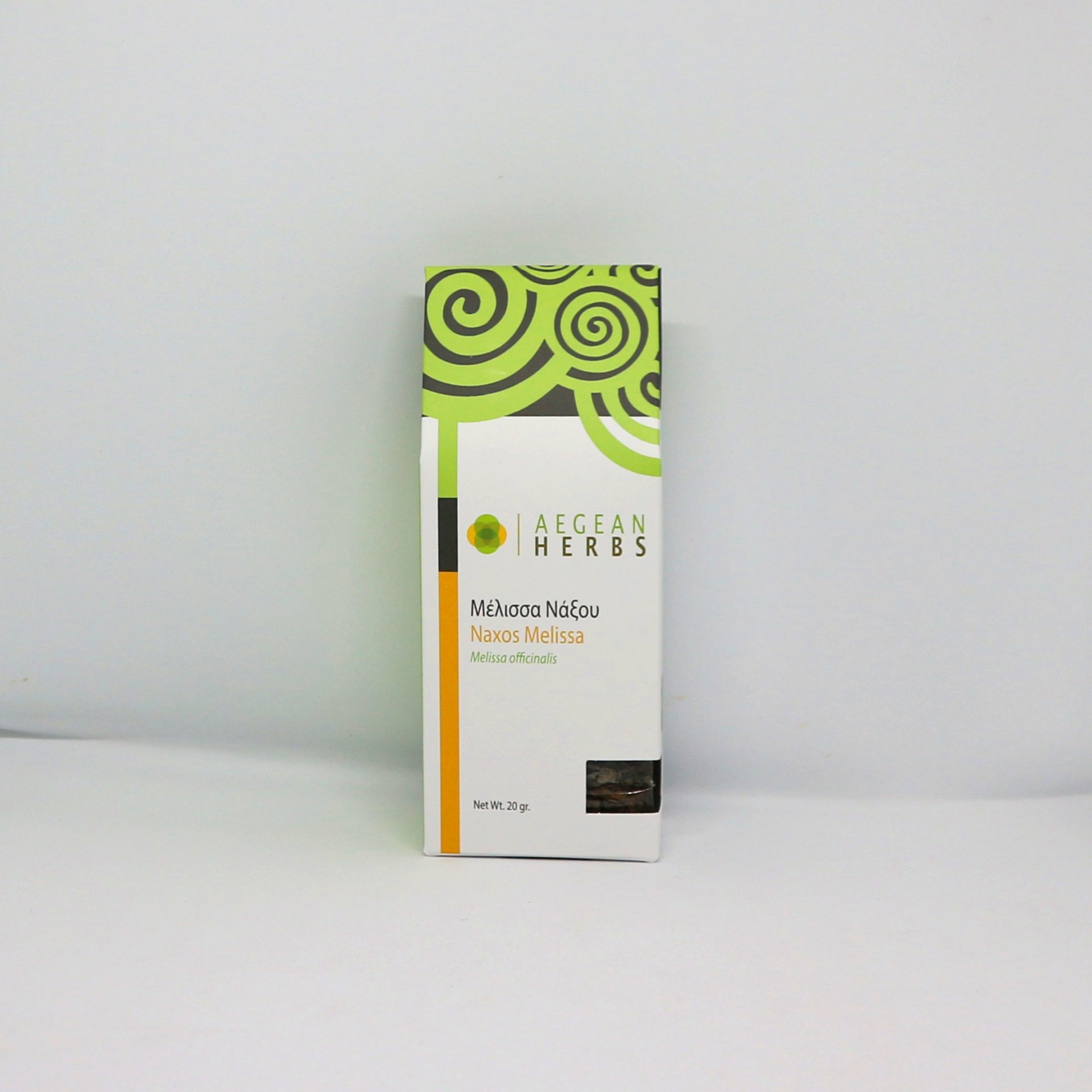Natural and Organic Herbs from the Aegean Islands
Amorgos Wild Oregano
Wild Oregano or Argania as it’s called in Amorgos is a rare and unique species endemic to the island. The herb of the goddess Aphrodite, it was a symbol of joy, happiness, and peace. Probably the most popular herb of Greek and Mediterranean cuisine in general. Wild oregano is more fragrant than common oregano and you only need a small pinch to enjoy its peppery aroma at your dish, and a hot or cold antioxidant-rich tea.. Cultivated biodynamically in Amorgos, in the area of Aegiali.
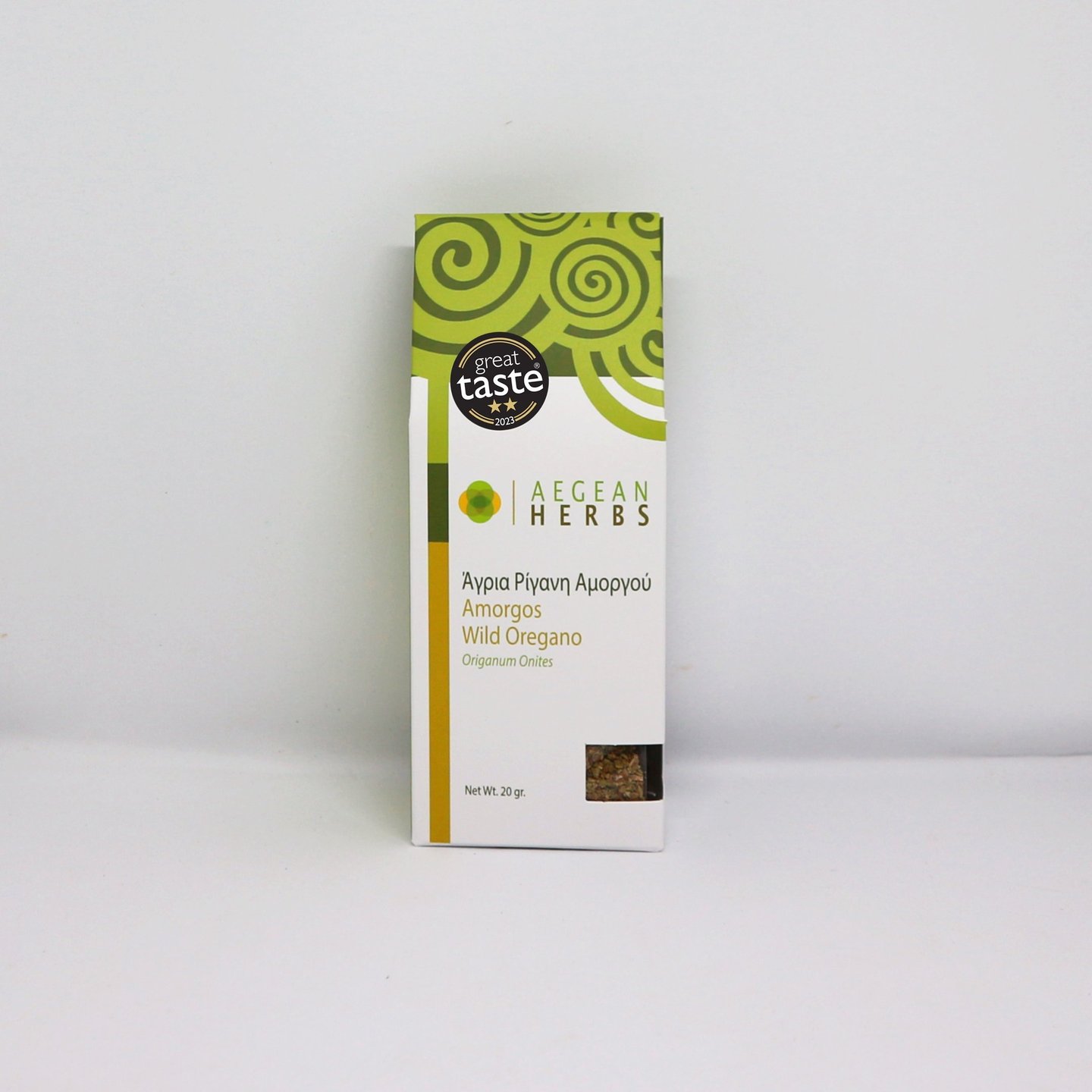

Amorgos Sage
The unique scent of Alisfakia, as the sage is called in Amorgos, awakens the senses. It is the plant of the god Zeus, the herb of immortality, and we first see it depicted in 1,400 BC. in fresco in the palace of Knossos. It works as a tonic for the whole body, mainly because of the tannins it contains. It is cultivated biodynamically in the area of Aegiali, Amorgos.
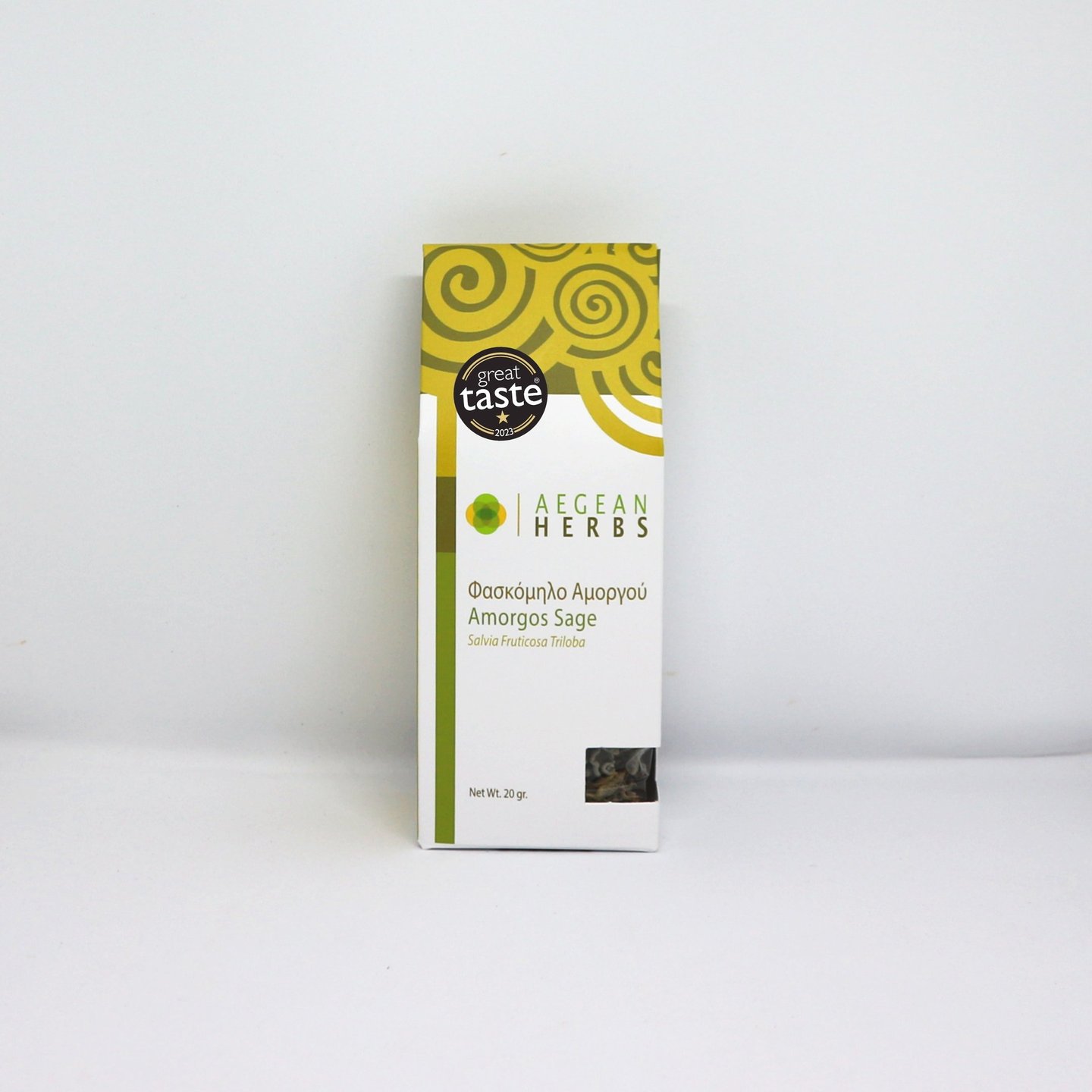

Cretan Mountain Tea (Malotira)
The ancient Greeks called it the “tea of the Titans”. "Malotira" is one of the most famous species of Sideritis, best known as “mountain tea” and grows on the Cretan mountains. The name “Malotira” owes it to the Venetians and comes from the words “male” (sick, evil) and “tirare” (draw) because they considered it a cure-all. Organically grown in Omalos, at the beginning of the famous Samaria Gorge.
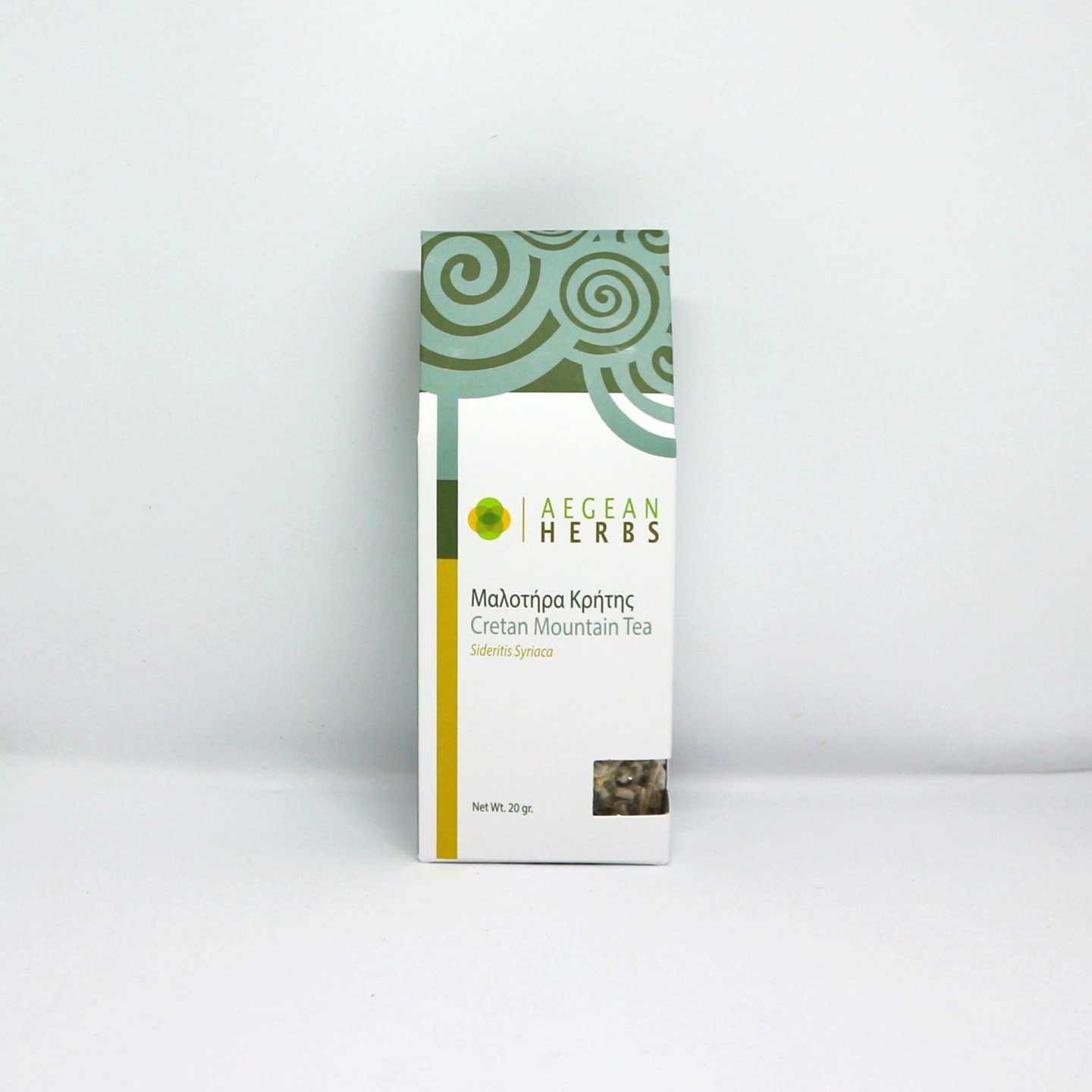

Paros Wild Thyme
A symbol of strength and bravery, said to have sprung
from the tears of Helen of Troy. As incense,
it burned during the feasts of Aphrodite, stirring desire and passion.
Folk tales say that where wild thyme grows,fairies gather to dance.
Its tisane boosts the immune system, and thyme is
a beloved staple of Mediterranean cuisine.
The native Aegean thyme is hand-harvested
from selected mountain spots in Paros.
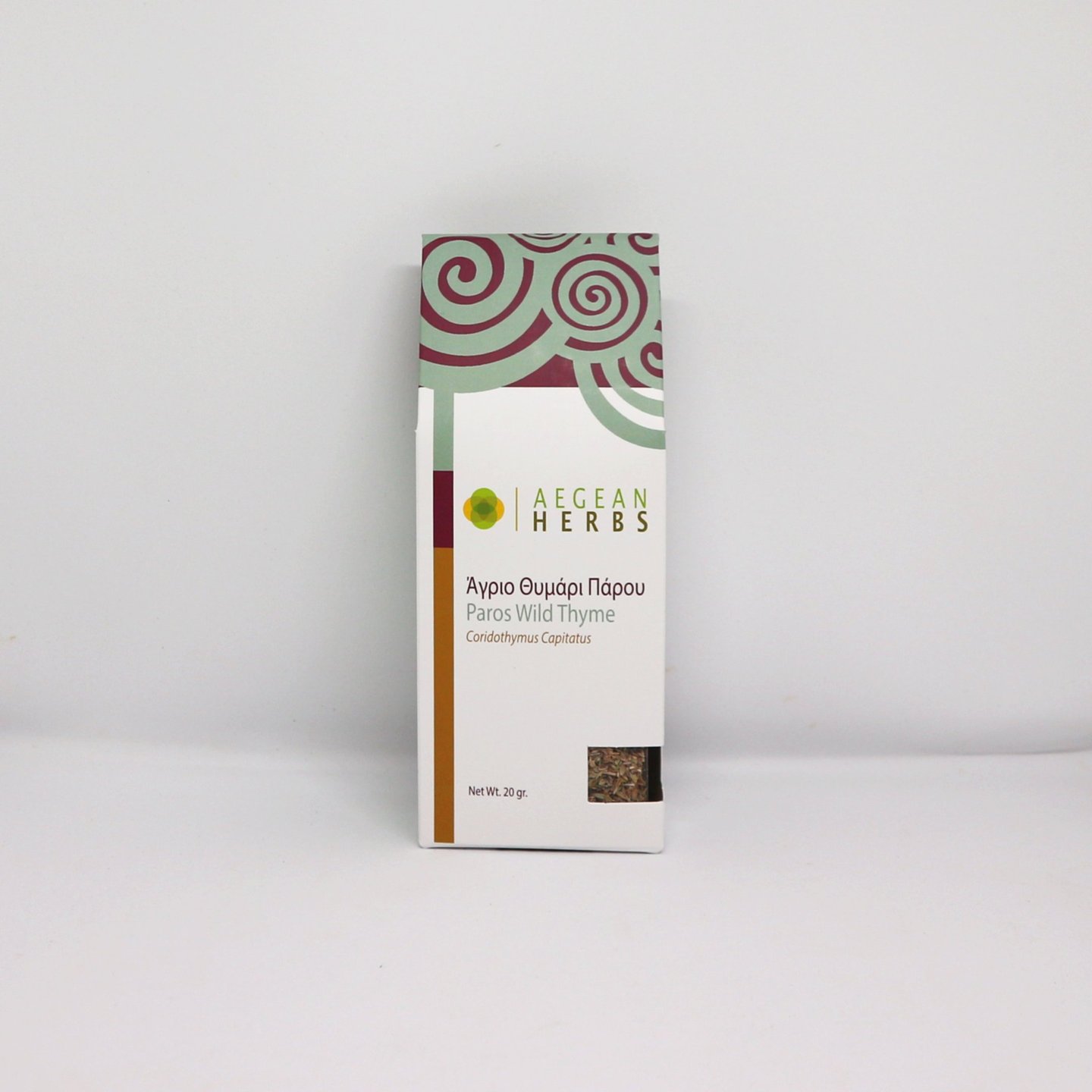

Cretan Dittany
Dictamus, or Erontas, was a favorite plant of the healer god Apollo.
Legend has it that wild goats of Crete, when wounded by hunters,
would chew dittany and so expel the arrow from their bodies.
Its decoction soothes stomach ailmentsand cold symptoms.
Its name comes from Mount Dikti, where it once grew abundantly,
and now it is cultivated in Embaros, Crete.
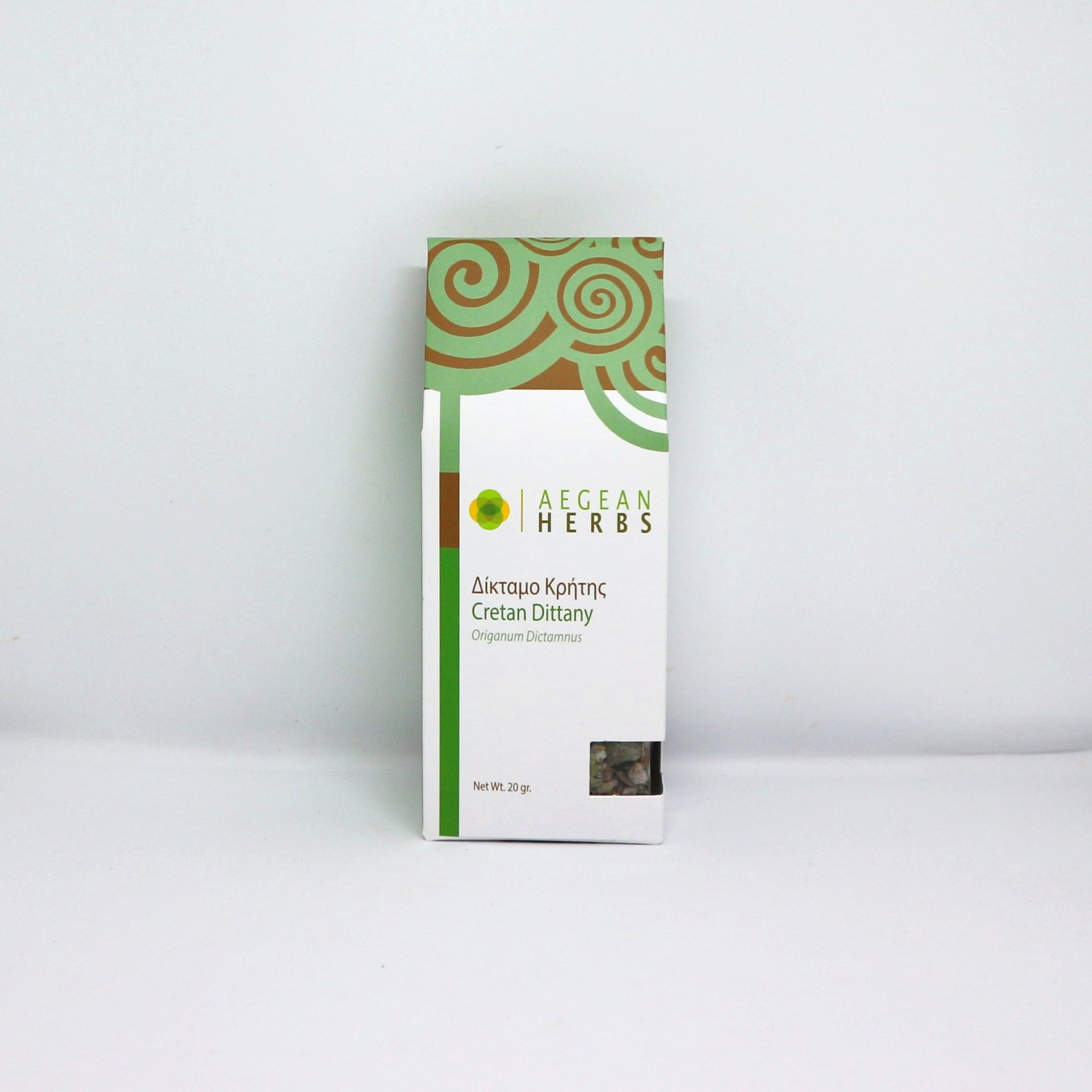

Naxos Melissa (Lemonbalm)
Dedicated to goddess Artemis, Melisa was the elixir of youth, and since ancient times it has been used by alchemists and healers for tonic potions. With its sweet taste and lemony scent, it gives an invigorating and refreshing drink for the hot summer days. Harvested from organic farms in Sangri, Naxos.
